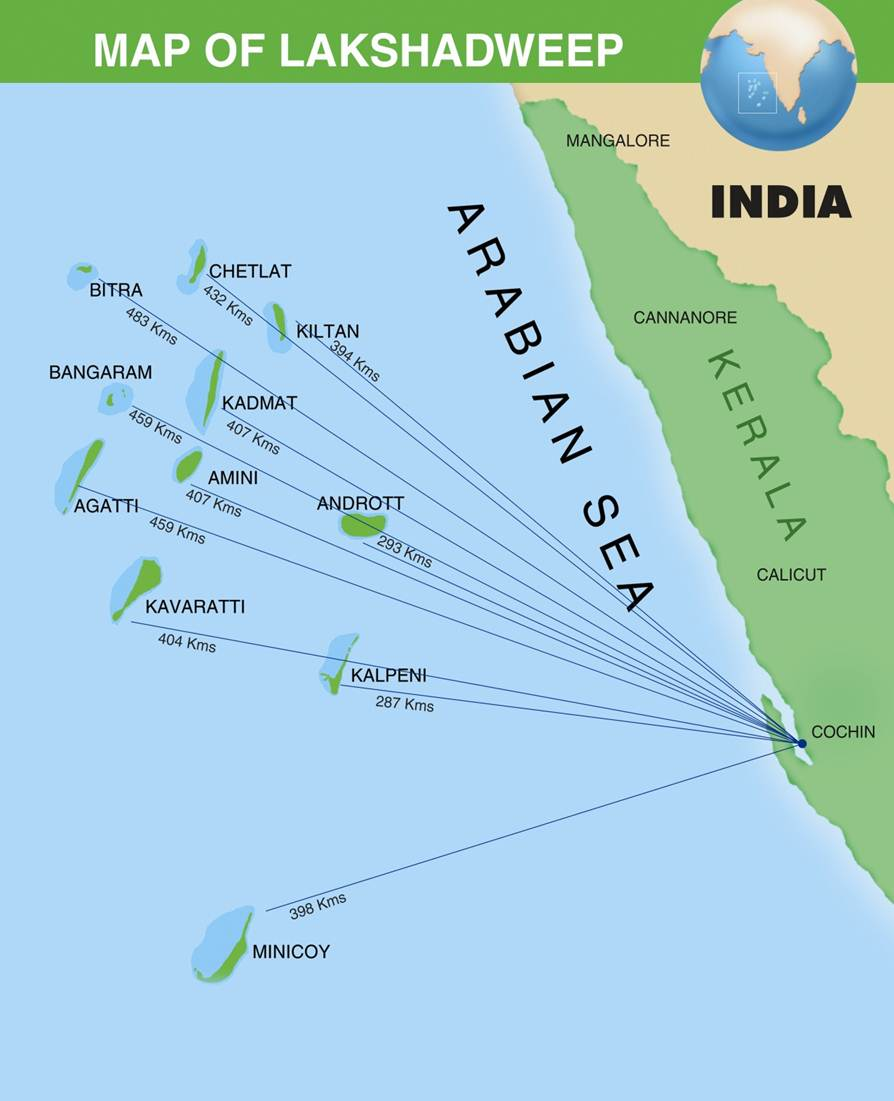Biodiversity & Environment
Agatti Island of Lakshadweep
- 03 Aug 2020
- 3 min read
Why in News
Recently, the southern bench of the National Green Tribunal (NGT) has granted an interim stay on felling of coconut trees on Agatti Island in Lakshadweep.
Key Points
- Background:
- Recently, a petition was moved in the NGT over indiscriminate cutting of coconut trees for a beach road.
- The tree-felling was violating the Union Territory’s (UT) Integrated Island Management Plan (IIMP).
- IIMP was formulated on the basis of a report submitted by the Supreme Court-appointed Expert Committee, headed by Justice R.V. Raveendran, a former judge of the SC.
- IIMP includes holistic island development plans prepared by the National Centre for Sustainable Coastal Management (NCSCM) for implementation by coastal States/ UTs.
- The IIMP undertakes scientific approaches, coupled with indigenous knowledge for the better management of the islands and its resources.
- Concerns:
- Due to the large scale cutting of the coconut trees, local residents are affected by losing income from the tree produces.
- It also poses an environmental challenge because the trees on the coastline act as a green belt to protect the rest of the island during cyclones and other natural calamities.
Agatti Island
- It is at a distance of 459 km (248 nautical miles) from Kochi (Kerala) and is located to the west of Kavaratti Island.
- Kavaratti is the capital of the UT of Lakshadweep.
- It has an area of 3.84 sq km and has a north-east, south-west trend with a long tail on the south.
- The lagoon area of this island is 17.50 sq km and there is plenty of coral growth and multicoloured coral fishes in the lagoons.
- Fishing is the most important industry of Agatti which is perhaps the only island besides Minicoy getting surplus fish. Next to fishing, coir (coconut fibre) and copra (dried meat or kernel of the coconut) are the main industries.





